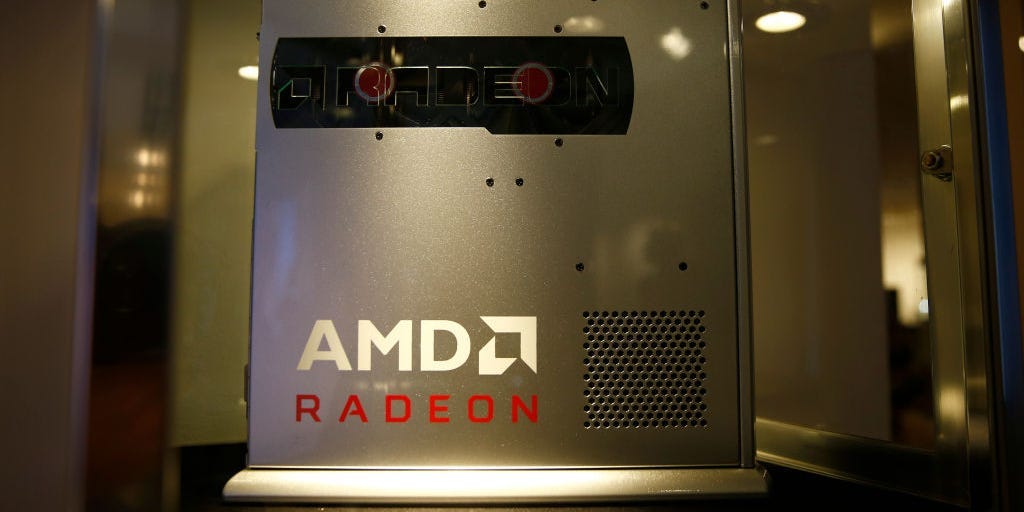
- Investors should take advantage of the recent sell-off and buy AMD ahead of a compelling growth opportunity in 2021, Bank of America said in a note on Friday.
- AMD is poised to take market share in the semiconductor space as Intel continues to struggle with manufacturing, according to the note.
- Bank of America’s $100 price target for AMD represents potential upside of 31% from Thursday’s close.
- Detailed below are five reasons Bank of America calls AMD a “top compute pick.”
- Visit the Business Insider homepage for more stories.
AMD has a compelling growth opportunity in 2021 that could lead to more market share gains as it capitalizes off of rival Intel’s manufacturing woes, according to Bank of America.
In a note published on Friday, the bank highlighted AMD as a fundamentally solid tech stock that investors should consider buying, especially after an 18% sell-off from its September 1 highs.
Bank of America rates AMD as a “Buy” with a $100 price target, representing potential upside of 31% from Thursday’s close.
Detailed below are five reasons Bank of America calls AMD a “top compute pick.”
1. Industry leading organic sales growth.
AMD has a high standard to beat in its upcoming Q3 & Q4 earnings report: itself.
In the second half of 2019, AMD posted year-over-year sales growth of 28%. Not even a global pandemic may be enough to stop AMD from beating that figure this year, according to Bank of America, who estimates AMD's second half of 2020 sales to surge more than 30% year over year, followed by another year of 20% growth in 2021.
The growth should continue as AMD benefits from work from home PC demand, upcoming game console launches, and server share gains, BofA said.
2. "Game console launches should be positive for sentiment."
Sony and Microsoft's upcoming next-generation video game consoles will both utilize processor chips from AMD. According to Bank of America, AMD could have $100 to $110 worth of chips in each console, nearly double from the previous generation's $65 to $70 of AMD content. On top of that, AMD has exposure to the growing trend in cloud gaming, spearheaded by Google Stadia, Microsoft xCloud, and Sony's PS Now, BofA said.
"Stock-outs of Nvidia's Ampere cards suggest strong gaming demand," BofA added.
3. Dependable roadmap vs. Intel turmoil.
Unlike Intel, "AMD is providing customers with a 7nm/5nm roadmap across servers and PC that is meeting all deadlines and well-engaged with TSMC/foundry ecosystem," according to the note.
And while Nvidia's proposed acquisition of Arm Holdings will present competition to AMD, "we continue to believe it's [Nvidia/Arm Holdings] overwhelmed by AMD's ability to gain share in a $50 billion total addressable market across servers and PCs exposed by Intel," Bank of America explained.
4. "Underappreciated balance sheet, equity = potential M&A opportunity."
AMD's net-cash position and expanding gross margins represents solid financial management, which "positions AMD well to consider diversifying M&A into complementary AI, smart NIC, 5G or programmable chips at some point," according to the bank.
5. "$90 billion growth stock owned by one 1 in 6 fund managers."
"Our ownership analysis suggest AMD stock is owned by only 16% of US active fund managers, well below the 25% average of similarly-sized semi stocks," BofA concluded.
Shares of AMD are up 67% year-to-date as of Thursday's close.

